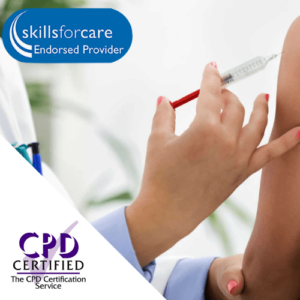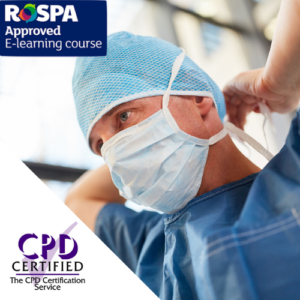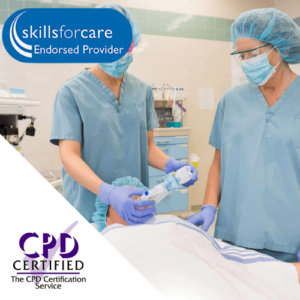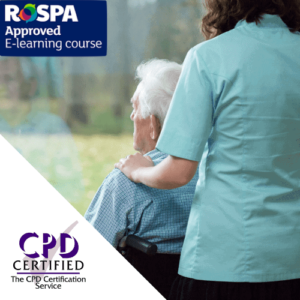In this article
What does a dentist do?
Dentists are registered healthcare professionals who diagnose, treat and prevent problems with the teeth and mouth, including injuries and diseases. A dentist is sometimes also known as a dental surgeon or dental practitioner.
Dentists predominately work in dental practices as general dental practitioners (GDPs) but can also work in hospitals (NHS or private), care homes, health centres, hospices and even patients’ homes. They treat patients of all ages (from children to the elderly) and backgrounds with different dental issues – from individuals requiring routine dental examinations to those needing a filling and even emergency treatment.
Dentists have many duties, including examining patients and diagnosing dental conditions, carrying out various dental treatments, using dental equipment, making referrals and providing advice. The role can also have an element of administrative work, such as maintaining patient records, keeping accounts and writing reports.
A dentist’s main aim is to deliver the best possible dental care in line with the needs of their patients. They help prevent dental problems and care for patients who are in pain and discomfort. They even help to prevent life-threatening diseases, such as oral cancer. Dentists also have an important role in education and awareness and promoting good oral hygiene and care.
Dentists will usually lead a multidisciplinary team which may include hygienists, dental nurses, therapists, technicians and dental receptionists. They will also liaise with patients and their families, external dental laboratories, other healthcare professionals (doctors and nurses), the Care Quality Commission (CQC), Local Authorities (LAs) and the Health and Safety Executive (HSE). At times dentists may need to deal with the police and courts to help with investigations, i.e. helping to identify people from dental records.
Most dentists will work in small to medium dental practices, either in a team or self-employed. Some dentists can work for larger organisations, such as the NHS, private hospitals and the Armed Forces.
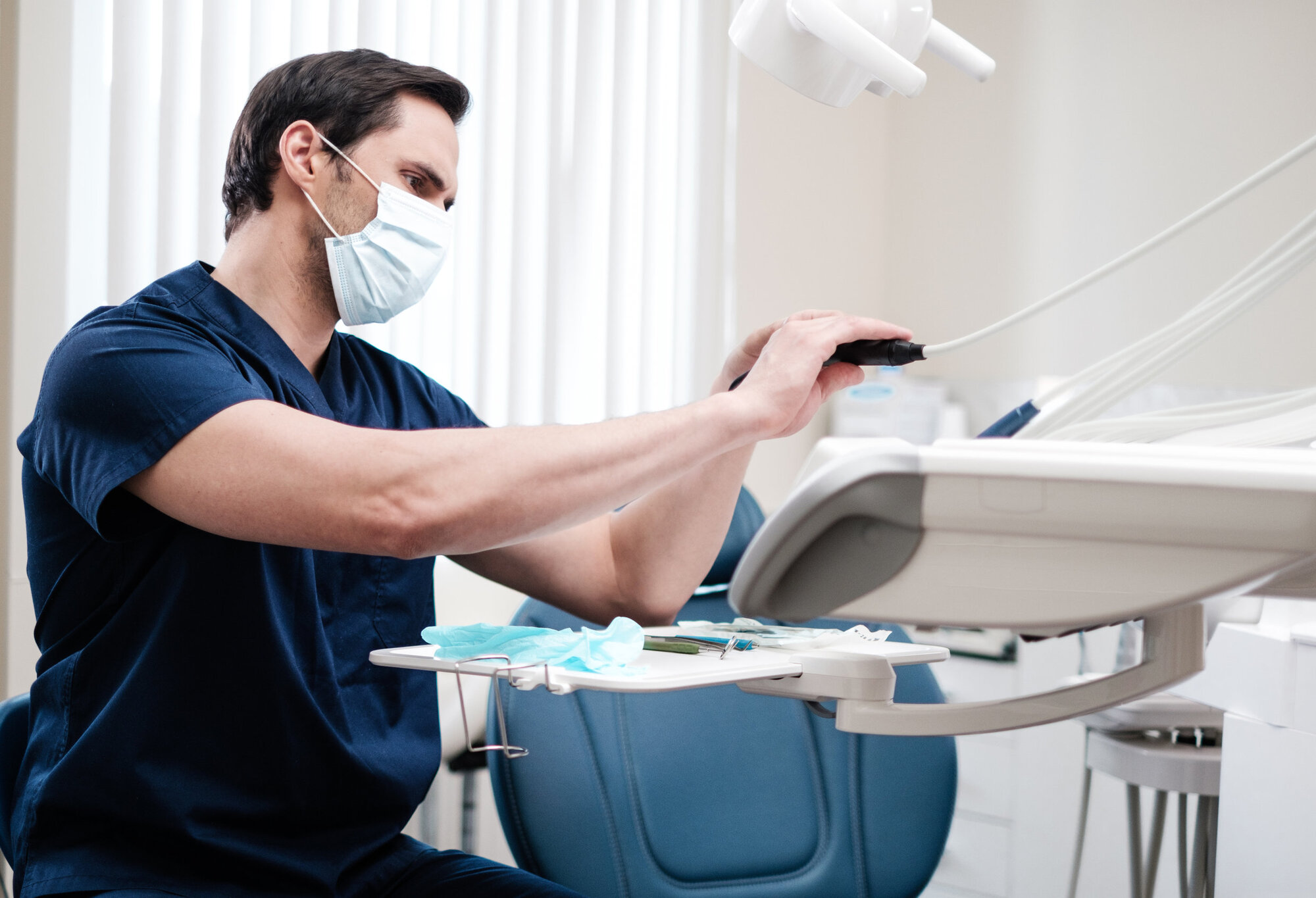
Responsibilities
A dentist will have many different responsibilities, which may include (this list is not exhaustive):
- Examining patients’ mouths, gums and teeth, and diagnosing any problems.
- Assessing the treatments required and agreeing on these with patients.
- Giving patients anaesthetic.
- Carrying out various dental treatments, e.g. fillings, crowns, extractions, root canals, and denture fittings.
- Carrying out cosmetic procedures, e.g. whitening, application of veneers and insertion of dental implants.
- Performing corrections, e.g. bite issues, teeth overcrowding and fitting braces.
- Using technical diagnostic equipment, e.g. taking X-rays and scans.
- Using various tools, e.g. drills and probes.
- Prescribing certain medications, e.g. antibiotics and painkillers.
- Referring patients to a dental hygienist or dental therapist.
- Providing education and promoting good oral care and hygiene, including diet.
- Providing emergency care promptly where required.
- Advising, reassuring and supporting patients.
- Liaising with other healthcare professionals, such as doctors and specialists.
- Maintaining patients’ dental records and writing reports.
- Recruiting, managing and training staff.
- Maintaining a clean and hygienic environment in line with infection prevention and control and cross-contamination.
- Overseeing budgets and finances.
- Maintaining dental equipment and consumable stocks.
The exact responsibilities a dentist has will depend on their role and where they decide to work.
Working hours
A dentist can expect to work between 35-40 hours a week. They typically work Monday-Friday but may be required to work at unsociable hours (evenings, weekends and bank holidays) and be on-call for emergencies.
Some self-employed dentists can choose their own working hours to suit themselves and their patients, and they may offer evening and weekend appointments. Dentists working in hospitals may be required to do more hours at unsociable times and be on-call.
Travel may be necessary for some dentists, i.e. those who work in the community. There may be a requirement to cover dentists in other areas, and there may also be opportunities to work overseas.
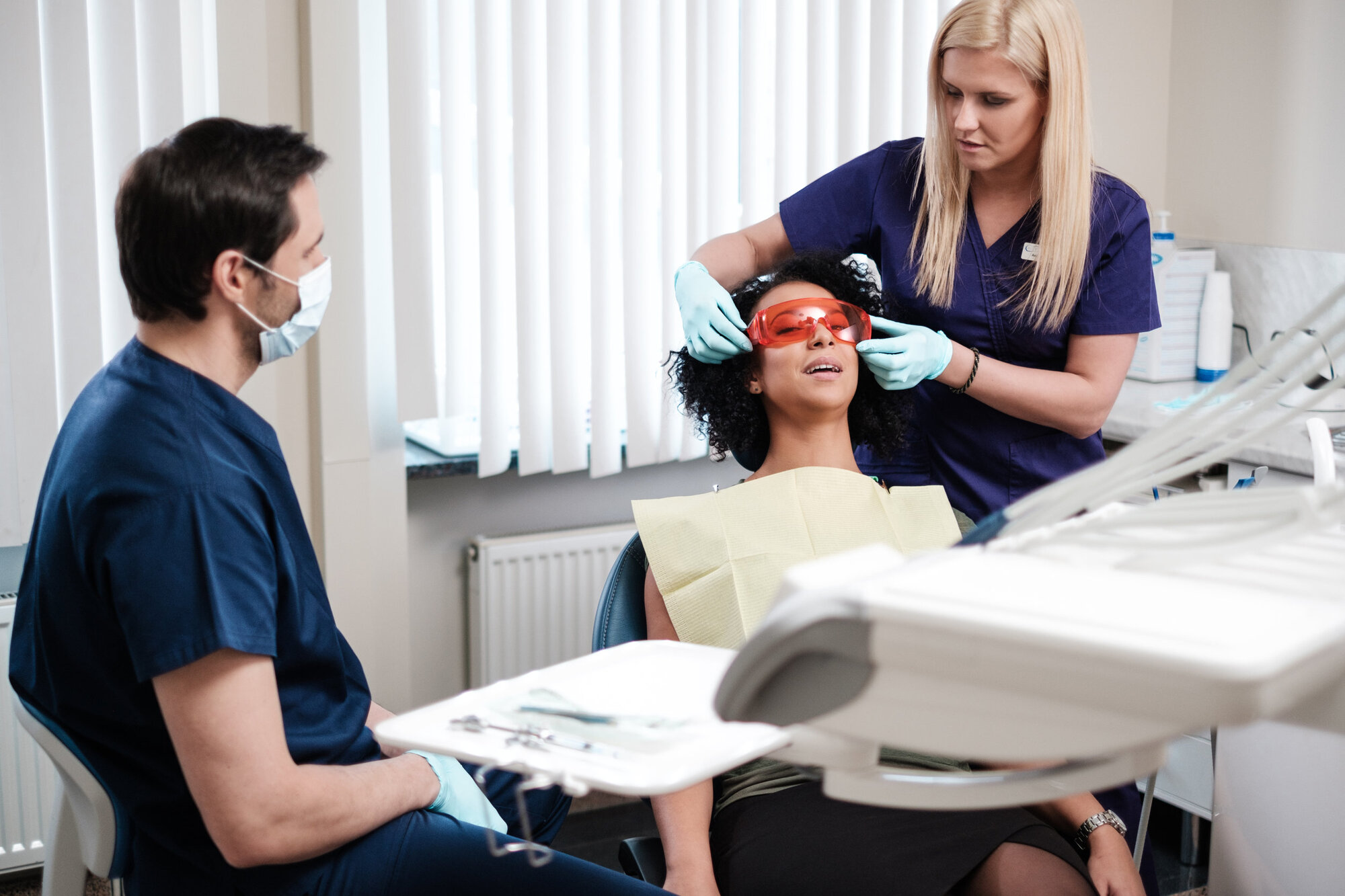
What to expect
Being a dentist is very rewarding. They help keep people’s mouths and teeth healthy and pain-free. They also help save lives by preventing infections, spotting signs of diseases (i.e. cancer) and educating people on their oral health. This can have a positive impact on individuals’ overall health and wellbeing, e.g. quitting smoking. Also, they can help boost confidence and make people happy by improving the look of their teeth. Dentists can go home at the end of the working day knowing they have made a difference to their patients.
There is no shortage of dental roles, there are jobs available nationally, and there are many different areas of dentistry in which to specialise. The salary for dentists is excellent when compared to other jobs, even at entry-level. However, it does reflect the level of education, training and commitment needed to become a dentist.
Being self-employed and having an opportunity to own a dental practice can be an attractive prospect. Dentists can set their own working hours, employ staff they want to work with and manage the business how they want.
Boredom will never be a problem for dentists, as their work is very varied. They will see and care for many different people with various dental issues during their working day. One appointment may be a routine examination with X-rays; the next may be extracting a broken tooth.
Even though being a dentist is rewarding, and there are many positives associated with the role, they may also face challenges, for example:
- Complex and high-pressured situations – each patient will have different dental issues, and some may require emergency care, as they are in extreme pain or distress. There is a lot of pressure on dentists to ensure that patients are treated quickly and as pain-free as possible. Dentists have a lot of responsibility, and if they make mistakes, it could have a negative impact on their reputation.
- Physically and mentally demanding – the role requires dentists to be on their feet for long periods, resulting in leg and back fatigue. Carrying out intricate repetitive work may also cause wrist, neck, hand and eye strain. Dentists will sometimes work with anxious, emotional and distressed patients, which can be stressful.
- Unpleasant sights and smells – being a dentist is not for the squeamish. Some patients may have bad breath, rotten teeth, coated tongues and other oral issues that may be too unpleasant for some individuals.
- Exposure to germs – dentists get very close to patients, so there is a risk of exposure to germs, such as viruses and bacteria. Dentists also have to ensure they reduce the risk of cross-contamination between patients. Dentists will usually be required to wear a uniform and protective equipment, such as tunics, aprons, masks, glasses and gloves.
- Training, costs and competition – achieving the necessary qualifications and undertaking training to become a dentist will take years, and it is not cheap. There is also a mandatory registration requirement, which is also a cost. Dentistry is a very competitive field, so individuals must be committed to working hard to enter the profession.
There are pros and cons in every career choice, and prospective dentists must know what to expect before deciding whether the role is for them. There is no doubt that working in dentistry and with anxious people (often in pain) is challenging and stressful. It is also physically and mentally demanding, there is a lot of responsibility, and working with peoples’ mouths and teeth is not always pleasant. However, there are many positives too and helping people in so many ways can be satisfying and rewarding.
When considering whether to be a dentist, individuals should look at the pros and cons. They should also ensure they have the necessary personal qualities to carry out the role and responsibilities required.
Personal qualities needed to be a dentist
Some of the personal qualities that a dentist requires will include (this list is not exhaustive):
- Knowledge of healthcare, medicine, human anatomy, dentistry and oral diseases.
- Knowledge of related legislation and standards.
- Knowledge of health and safety and infection control.
- Knowledge of confidentiality, data protection and GDPR.
- Having a caring attitude, sensitivity, empathy and understanding.
- Having confidence, patience and a calm and reassuring manner.
- Enjoying being hands-on with people on a daily basis.
- Excellent interpersonal skills, i.e. the ability to deal with patients of all ages and backgrounds.
- Excellent hand-eye coordination and manual dexterity skills.
- Excellent communication skills, both written and verbal.
- Good customer service skills.
- Good thinking and reasoning skills.
- Good listening skills and the ability to give and follow instructions.
- Good physical skills, e.g. physically fit with good movement and coordination.
- Good organisational, managerial and leadership skills to manage a dental practice.
- Good time management for appointments.
- Being motivated and committed to helping people and their welfare.
- Being thorough and having attention to detail.
- The ability to work both in a team and alone using own initiative.
- The ability to keep concentration for long periods.
- The ability to be resilient in emotionally demanding situations.
- The ability to gain patients’ trust and confidence and build relationships with them.
- The ability to work under pressure and remain calm in stressful situations.
- The ability to use IT equipment and software competently, e.g. digital imaging, patient records and accounts.
- The ability to work with and maintain different technical equipment.
- The ability to work well with their hands.
Qualifications
To become a dentist, individuals need a degree in dentistry approved by the General Dental Council (GDC). Unlike other undergraduate degrees, which usually take three years full-time, dentistry degrees take five years. Individuals could complete the degree in four years (four-year accelerated graduate-entry programme) if they already have a relevant 2:1 degree, e.g. in biomedical science or another science.
To be accepted onto a Bachelor of Dental Surgery (BDS) or Bachelor of Dental Surgery (BChd) degree course typically requires three high grade A levels (AAA-ABB) (or equivalent), including biology and chemistry. If individuals cannot meet the academic entry requirements, it may be possible to apply for a one-year pre-dental course (at some dental schools).
Some universities may ask individuals to pass a University Clinical Aptitude Test (UCAT) or BioMedical Admissions Test (BMAT). Getting a placement at dentistry schools is highly competitive, and some institutions may also require a personal statement and interview. The grades and tests will depend on the university entry requirements, and individuals should check before applying.

Registration
On successful completion of a degree in dentistry, individuals must register with the GDC to practice as a dentist. Registration must be renewed annually to continue to practice. There is a cost to become registered and for maintaining registration.
Dentists who have achieved an overseas qualification will still need to register with the GDC to practice legally and will be required to pass an Overseas Registration Exam (ORE).
Work-based training
Once an individual becomes a registered dentist, they will be required to undertake dental foundation training (DFT). This supervised work-based training involves working in an approved dental practice with an experienced practitioner for one year.
Work experience and volunteering
It is not a mandatory requirement for individuals to undertake work experience before applying for a degree. However, it can be beneficial for them to see if it is a suitable career path for them personally and find out more about the role. It may also give them a competitive advantage when writing a personal statement for university admissions.
Gaining practical experience through volunteering can help towards becoming a dentist. An individual can volunteer at their local NHS trust or a charity, such as dentaid. Alternatively, there may be work placement opportunities in private dental practices and a chance to shadow experienced dentists.

Training courses
Learning does not stop once a dentist becomes qualified and registered. Undertaking postgraduate qualifications (part-time) and relevant short training courses can help dentists enhance their employability and keep their knowledge and skills current.
Most colleges and accredited private training providers provide training courses. Some examples of relevant courses that may be useful for dentists include:
- Safeguarding.
- Infection control.
- Needles and sharps.
- PPE in healthcare.
- Mental health and capacity.
- COVID-19 awareness.
- Health and safety, e.g. COSHH.
- Understanding GDPR.
Professional bodies and associations, such as the GDC and the British Dental Association, can advise on reputable training courses. They also have events, support services and guidance that can help dentists and give them the means to continue their professional development. Continuing professional development (CPD) is a mandatory requirement for GDC registration renewal. Also, see CPD courses for dentists for further guidance on CPD.
The training a dentist will require will depend on where they want to work, their role in dentistry and the CPD requirements for GDC registration. As well as looking on professional body websites, it is also worth looking at several job advertisements to identify the qualifications and other training needed for specialist roles. Jobs can be found on NHS Jobs, BDJ Jobs, Dental Guide, HealthJobsUK and other job sites, such as Armed Forces Careers and Indeed. Also, look at recruitment agencies, e.g. ZEST Dental Recruitment and Dental Elite.
Having more relevant training and competence will open up more opportunities for dentists. Refresher training will also be required, as it is a legal requirement under legislation, and it keeps knowledge and skills up to date.
Criminal records checks
Dentists will be required to undergo a criminal record check, as they may come into contact with children and vulnerable adults. Having a criminal record, caution, warning, or conviction may put off prospective employers. It can even affect GDC registration. However, they should account for the seriousness of the crime, when it occurred and its relevance.
The organisation that holds criminal records will depend on the country within the UK, for example:
-
- England and Wales – Disclosure and Barring Service (DBS).
- Northern Ireland – AccessNI.
- Scotland – Protecting Vulnerable Groups (PVG) scheme.
Driving
Some dentists will be required to drive as part of their role, especially when working in the community. Therefore, they should have a full clean driving licence.

Where do dentists work?
Dentists can work in many different settings, including (this list is not exhaustive):
- Dental practices.
- Hospitals.
- Community health centres.
- GP surgeries.
- Schools.
- Clinics, including mobile.
- Residential care homes and nursing homes.
- Hospices.
- Patients’ homes.
- Prisons.
- Overseas.
They can work for public bodies and private organisations, for example:
-
- The NHS.
- Private practices.
- Private hospitals and clinics, e.g. Bupa and Nuffield Health.
- Charities, e.g. hospices.
- The Armed Forces, e.g. the RAF, Royal Navy or Army.
- HM Prison Service.
They can also be self-employed and work for themselves or work for a dental agency.

How much do dentists earn?
If a dentist decides to work for the NHS, their salary will be (these are a guide only and are subject to change annually):
- Newly qualified dentists undertaking dental foundation training – £33,720.
- Dental core trainees – between £39,467 and £50,017 (there are also overtime and enhancement opportunities).
- Dental speciality trainees – between £50,017 and £53,077.
- Salaried dentists employed by the NHS (mainly community dental services) – between £43,019 and £92,013.
- Consultants in dental specialities – between £84,559 and £114,003.
The exact salaries for dentists will depend on whether they decide to work in a dental practice or enter dental core training and the type of role and location (London supplement). If they choose to work in general practice, as self-employed contractors, salaries will also depend on whether they mix NHS and private dental work.
As dentists progress in their careers and enter more senior positions, their salaries will increase. There is potential for dentists to earn more if they only do private work, i.e. £140,000+. Experienced dentists may earn more if they combine dentistry with research, managing and teaching.

Types of dentistry roles to specialise in
Not only are there opportunities for dentists to move up the career ladder and work in various locations, but there are also many different roles in which they can specialise, for example:
- General dental practitioners – work in dental practices, e.g. on the high-street, and provide NHS and/or private dental care and treatments.
- Community dentists – work in the community where patients cannot get to practices, e.g. patients’ homes, nursing homes and clinics. They are more mobile than other dentists.
- Hospital dentists – work in hospitals, usually in specialist areas and carry out complex treatments, e.g. oral surgery.
- Armed forces dentists – work in the RAF, Royal Navy or Army in the UK or overseas.
In addition to the above roles, dentists can also specialise in specific areas of dentistry, such as:
- Dental public health – specialising in improving dental health in their communities through research and education.
- Endodontics – specialising in root canals, as well as dental pulp and surrounding tissue.
- Oral and maxillofacial surgery – specialising in diseases affecting the mouth, jaw, face and neck.
- Orthodontics – specialising in teeth, jaw and bite irregularities and fitting braces and retainers.
- Paediatric dentistry – specialising in providing dental care and treatment to children and young people.
- Periodontics – specialising in diseases and disorders of the gums.
- Prosthodontics – specialising in restoring and replacing missing teeth, e.g. making crowns, bridges, partial dentures, and dentures.
- Restorative dentistry – specialising in three areas, endodontics, periodontics and prosthodontics.
There are so many different roles and specialisms to choose from and far too many to mention here. British Dentistry has further information on specialist areas.
All different dentistry roles will require differing knowledge, skills, experience and qualities. Some may need specific qualifications, e.g. postgraduate and additional training for specialised areas. Most dentists will need to know how to diagnose and treat a range of dental problems, utilise different techniques, tools and equipment and maintain patients’ dental records. Any additional areas of expertise will depend on what an organisation is looking for in a dentist (if employed) and the type of work a dentist wants to carry out.
If dentists do not carry out their role effectively, it can result in a patient’s dental health worsening, may cause them pain and can make them more anxious, which may affect a dentist’s reputation. In some cases, errors may even cost lives, i.e. if signs of disease are missed or ignored. Therefore, whatever the type of role, dentists must have the necessary competence (knowledge, skills and experience) to carry out the work professionally and safely. They should also know the limits of their competency and not carry out techniques or treatments if they have not been trained and are not competent.

Professional bodies
Dentistry standards, techniques, technologies and laws are updated regularly. Therefore, dentists need to keep abreast with the latest developments and changes in legislation to remain legally compliant and ensure they carry out their roles effectively and safely. CPD gives dentists the knowledge and skills to keep up to date with these changes and understand their responsibilities. It also helps them stay registered with the GDC and allows them to progress their career.
Joining a professional body can help prospective and current dentists enhance their skills and overall career. The GDC and the British Dental Association offer different levels of membership, CPD, access to industry contacts and networking events.
There is ample opportunity for career progression within dentistry, and it is a diverse field. With more qualifications and experience, a dentist can become a hospital dentist and even a consultant. They can also decide to focus on a specific area of dentistry, such as paediatrics and oral and maxillofacial surgery. Alternatively, they may choose to become a partner in a dental practice or set up their own.
Having the knowledge, skills, and experience in dentistry can also lead to a career in different areas. For example, a dentist may want to work in education and training, operations management, research, or other areas of healthcare, e.g. epidemiology.




